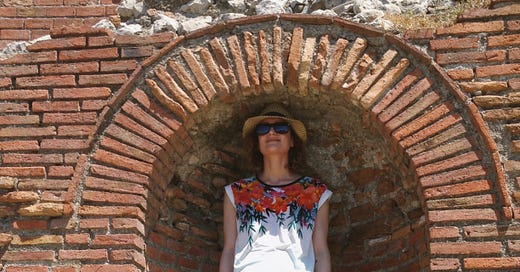#51 What's the actual cost?
On how to calculate success (and 10 years of not drinking, kind of)
Almost ten years ago I came to Sicily for the first time, with a friend and his family. We started somewhere in the middle, on a farm with peacocks and extremely good pastry, and then we went to Siracusa and eventually to Taormina, which is where I’m writing from today (actually that’s not true, by the time I ended up sending this I’d moved to Palermo).
I was three months sober on that trip, and perhaps it’s because of that proximity of time and how close those two events were that Italy feels almost inseparable from my sobriety. I can’t think of either without combining them. Italy makes me think of sobriety, and sobriety makes me think of Italy.
So I suppose it’s only natural that I’m here, on this island that I love and where I feel part of my life was conceived, on the tenth anniversary of the day I quit drinking, which is April 14, 2013.
I started to write the piece I want to write about turning ten years alcohol-free, but it’s a …




